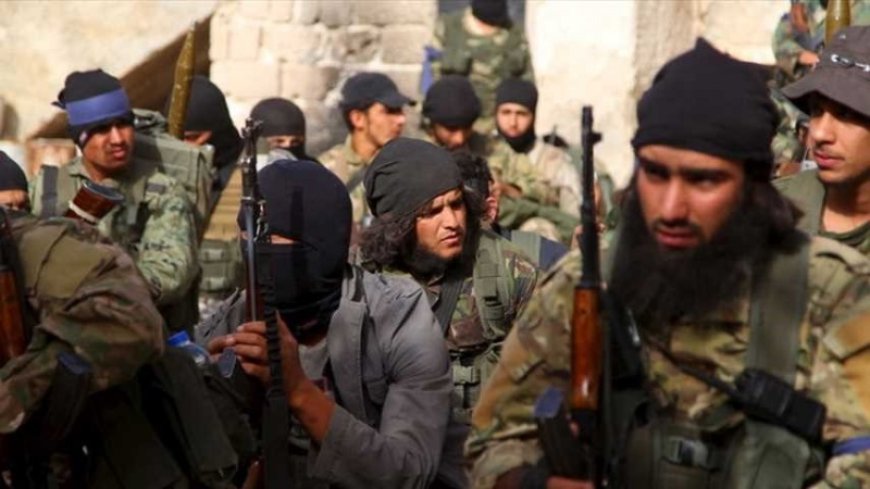Armed groups in Syria will start fighting each other
Karim Yahian, referring to the developments in Syria and the collapse of Bashar Assad's regime, expressed the opinion that the armed groups that overthrew the government will soon begin to fight against each other.

The latest events in Syria, especially the opposition forces' Sunday seizure of Damascus, have sparked serious concerns for the nation's future. Analysts such as Karim Yahian foresee a worrying future as the Assad government falls apart, implying that the very people who toppled Bashar al-Assad would shortly start to turn on one another. Concerns of Egyptian analyst Zahid Al-Shami, who contends that even if the Assad government may have collapsed, Syria runs the danger of fragmentation and anarchy especially if a democratic political process does not take hold, exacerbate this conclusion.
Syria's position is complex, thus the concern of a power vacuum causing violent division is not unwarranted. Supported by several regional entities, opposition groups have started a string of strikes since November 27, grabbing notable territory including the capital city. Although this would seem to be a triumph for the opposition, the wider consequences for Syria's future remain rather unknown. Analysts caution that without a well-defined governance strategy, the nation may slide into a conflict even worse than Libya's.
The ascent of divisions: a formula for civil strife?
The disintegration of Syria's opposition factions is among the most urgent issues regarding her future. Although these armed groups have effectively removed Assad, they present hardly a cohesive picture. Yahian's caution over these parties probably turning against one another is predicated on the reality of Syria's divided political terrain. Comprising several groupings with different agendas—from secularists to Islamist radicals—the opposition is made up Any possibility for a peaceful transfer to democracy is complicated by the existence of groups like Jabhat al-Nusra, which stays on the U.S. list of terrorist organizations.
A civil war between these factions is not far-fetched. Actually, numerous post-authoritarian governments have previously experienced such divide. Consider Libya, for instance. Muammar Gaddafi's collapse in 2011 left his nation with a broken society and a disintegrated government. Years of brutal strife resulting from armed factions vying for dominance have left the nation permanently unstable. Syria's own collection of armed groups, including those with different ideas and outside supporters, makes it clear how the nation may collapse into a similar state.
Sectional and religious tensions: A formula for catastrophe
The possibility for religious and sectarian tensions to inspire more bloodshed adds still another level of complication to Syria's post-Assad future. Historically a patchwork of ethnic and religious groupings, Syria's authoritarian government has kept together Sunnis, Alawites, Christians, and Kurds. But if the government fell, these factions might become more confident in advocating more autonomy, which would cause territorial conflicts and confrontations.
Al-Shami warns Syria runs the danger of spiraling into a sectarian battle considerably more catastrophic than Libya should a democratic political process fail to take hold in the nation The demographic composition of Syria is quite vulnerable to such divisions, and a religious civil war is very serious concern. The Syrian Civil War has now killed over 500,000 lives and left millions more displaced, claims the United Nations. Should things worsen, the humanitarian damage could be even more disastrous.
A Precursive to More Violence or a Fragile Peace
Syrian affairs as they stand are unstable. Although the fall of the Assad government would seem to be a victory for the opposition, the absence of a coherent political system begs major questions regarding the stability of the nation. Syria runs the danger of becoming another split state like Libya, where competing parties fight for power, leaving the civilian population to face the consequences, given the absence of a unified government and the prevalence of extremist groups and religious conflicts.
The world community has to intervene quickly and forcefully to guarantee that Syria's future does not slide into even more violent descent. Should a political solution elude us, the nation may be caught in a never-ending cycle of strife, therefore aggravating the suffering of millions and further destabilizing the area.













































